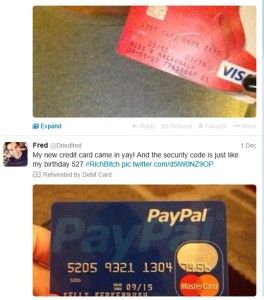There is always a problem when it comes to knowing if your data has been compromised on line. That problem is how do you know if your data has been compromised? Until now you would need to download and scan the list of compromised accounts yourself. Now there is a much easier way.
The website “have i been pwned?” (https://haveibeenpwned.com/) has been created to help you solve this exact problem. This website is very simple, when there are large amounts of data which have been breached and the lists made public they will be loaded into this website so that you can search and see if your account was on one of the lists.
![]()
Let me be clear, the person who created this website is NOT the person who is stealing your data, he’s just taking data that someone else has stolen and making it so that you can easily search the data without having to figure out where to get the data, and without having to figure out how to search through all this data manually.
So who created this site? The answer here is also pretty easy, his name is Troy Hunt and he is trustworthy. He is a well known IT security researcher and author who made this website to make everyone else’s life easier. If you have questions about the site, I would recommend checking out the FAQ that is posted. If you’ve read Basics of Digital Privacy Troy’s name may look familiar. This is because I talked about Troy a couple of times in the book, and you’ll see a couple of links to Troy’s blog over on the links page, specifically this one.
Currently the website allows you to search the site, and it allows you to setup alerts so that when new data is loaded into the system if your email address has been compromised the website can email you.
I highly recommend checking your email address via this website and setting up alerts for your email address.
There are new features coming that Troy is working on, but I’m not going to steal Troy’s thunder.
Denny
http://basicsofdigitalprivacy.com

